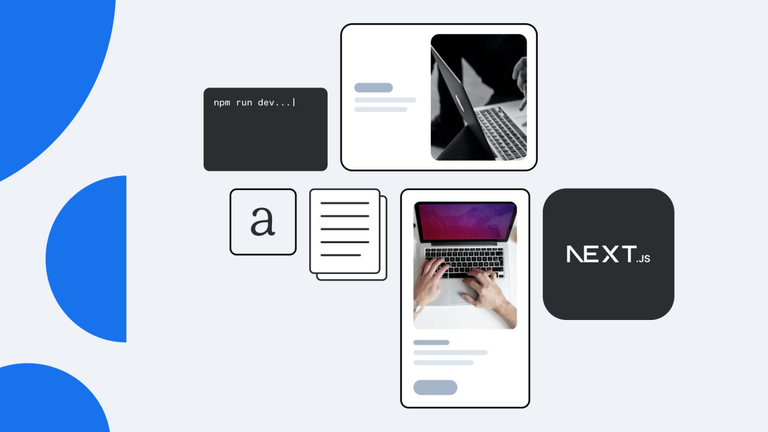ENTERPRISE CONTENT MARKETING PLATFORM: CHOOSING THE RIGHT HEADLESS CMS FOR YOUR BUSINESS
This article explores the key benefits of headless CMS for content marketing and provides a comparison of top platforms to support informed decision-making for business leaders and marketing managers.

As enterprise companies expand their digital strategies, the need for a powerful, flexible, and scalable content marketing platform has become critical. Traditional CMS often lack the adaptability, scalability, and integration features necessary to keep up with enterprise demands. A headless CMS offers a modern approach, decoupling content management from presentation, which enables businesses to deliver content effortlessly across multiple channels, including websites, apps, and digital displays.
At FocusReactive, we specialize in building custom headless CMS platforms designed to meet the unique needs of enterprise-level businesses.
What is a Headless Enterprise Content Marketing Platform?
A headless CMS separates the backend content management from the frontend presentation. This separation allows enterprises to efficiently manage content and distribute it across various platforms (websites, apps, digital kiosks) without rebuilding or redeploying the backend. Unlike traditional CMSs, headless systems offer flexibility and scalability to support the needs of large organizations, making them ideal for corporate marketing managers, content strategists, and business owners who manage complex content architectures.
At our agency, we have extensive experience in developing these custom headless platforms. Our goal is to create scalable, secure, and highly flexible solutions that smoothly integrate with existing corporate systems, enabling our clients to take their content marketing to new heights.
Key Features of a Headless CMS for Enterprise Content Marketing
For large enterprises, a headless CMS offers core features designed to optimize content management at scale:
Scalability and Performance
Businesses process huge volumes of content, from blog posts and case studies to product information and customer data. Headless CMSs are designed to support high traffic and scale easily as your content needs grow, maintaining reliable performance even during peak usage.
Customization Flexibility
Enterprise-level companies often have complex business processes requiring specialized workflows, permissions, and integrations. A headless CMS allows developers to customize content models, workflows, and features to suit these unique business requirements.
Integration with Corporate Systems
For businesses, easy integration with other tools, such as CRM, analytics platforms, and marketing automation systems, is important. A headless CMS with strong API capabilities facilitates integration with other enterprise tools, helping to unify data and optimize operations.
Multichannel Content Management
Headless CMSs enable enterprises to distribute content across various channels and devices, providing a consistent experience for users on websites, mobile apps, social media, and more. This multichannel support is essential for delivering targeted and engaging content to diverse audiences.
Headless CMS for Localization
For global businesses, the ability to localize content is critical. Many headless CMS platforms offer features for localization and SEO, making it easy to adapt content for different languages, regions, and search engines.
Comparison of Popular Headless CMS Platforms for Enterprises
Choosing the right headless CMS depends on the specific needs of your enterprise. Here is a brief comparison of leading platforms:
Sanity
![]() Sanity interface
Sanity interface
- Strength: Offers high flexibility and structured content support, with real-time collaboration for teams
- Weakness: Some advanced customizations may require in-depth development expertise
Storyblok
![]() Storyblok interface
Storyblok interface
- Strength: Features an intuitive visual editor, which is beneficial for marketing teams
- Weakness: Limited customization options compared to more developer-focused platforms
Dato CMS
![]() DatoCMS interface
DatoCMS interface
- Strength: Optimized for high-traffic projects with quick integration and strong scalability
- Weakness: Slightly less flexible when it comes to advanced customization
Payload CMS
![]() Payload interface
Payload interface
- Strength: Designed for custom development, with TypeScript support for personalized solutions
- Weakness: Requires a higher degree of technical knowledge for setup and maintenance
Directus
![]() Directus interface
Directus interface
- Strength: Ideal for SQL database management with a powerful API
- Weakness: Limited visual tools for non-technical users
Tips for Choosing the Best Headless CMS for Your Enterprise
- Sanity CMS and Storyblok are excellent choices for marketing teams needing flexibility and real-time collaboration features
- DatoCMS and Payload CMS are ideal for high-traffic projects or businesses needing custom integrations
- Directus is particularly suitable for enterprises that rely heavily on SQL databases x
Conclusion
Choosing the right enterprise content marketing platform is a strategic decision that can transform your business's content management capabilities. If you're considering implementing a headless CMS or upgrading your current system, our team is here to help.
Contact us today for a consultation, and let us guide you in selecting and implementing the best solution to support your business's unique needs and future growth.








